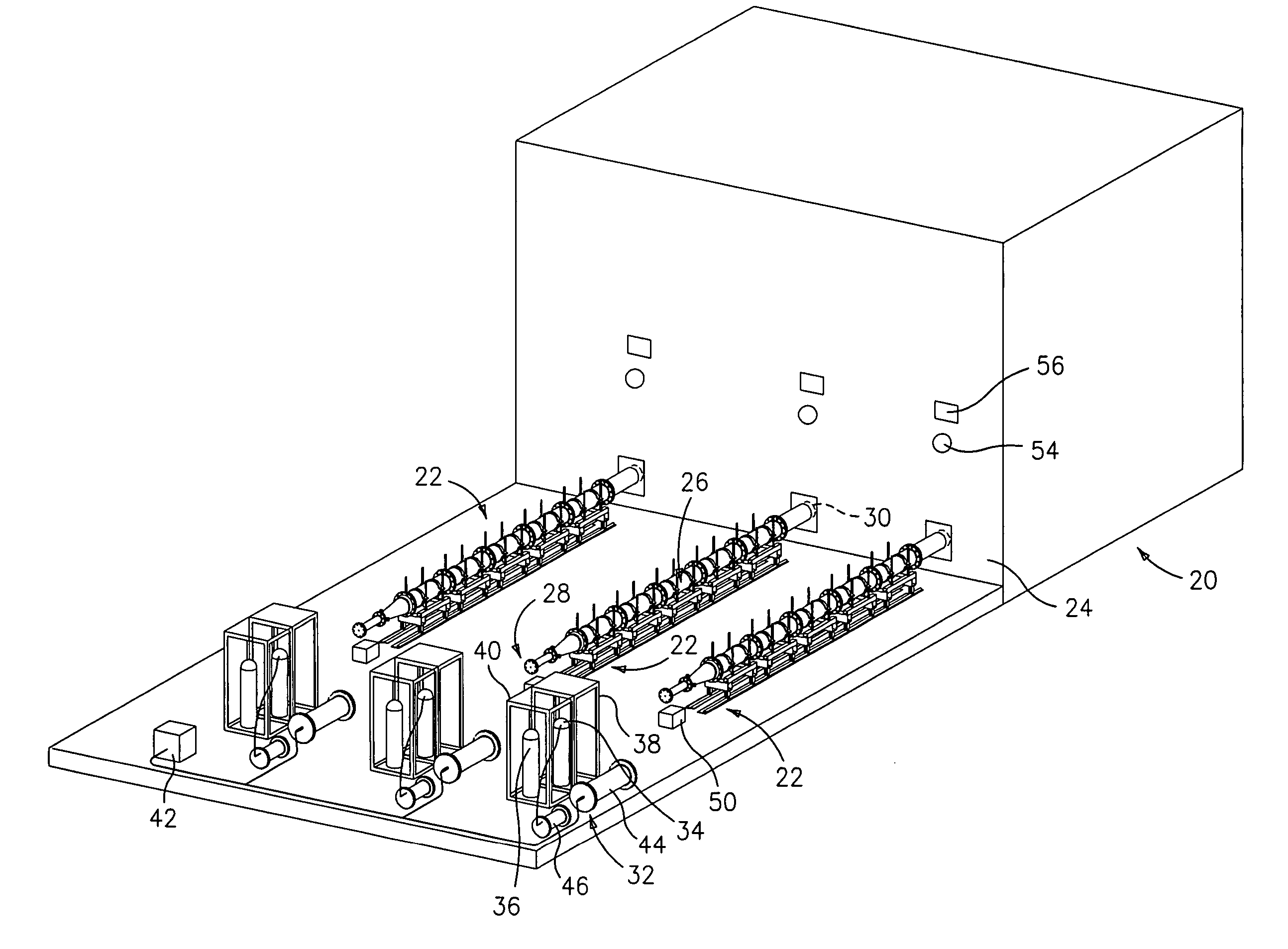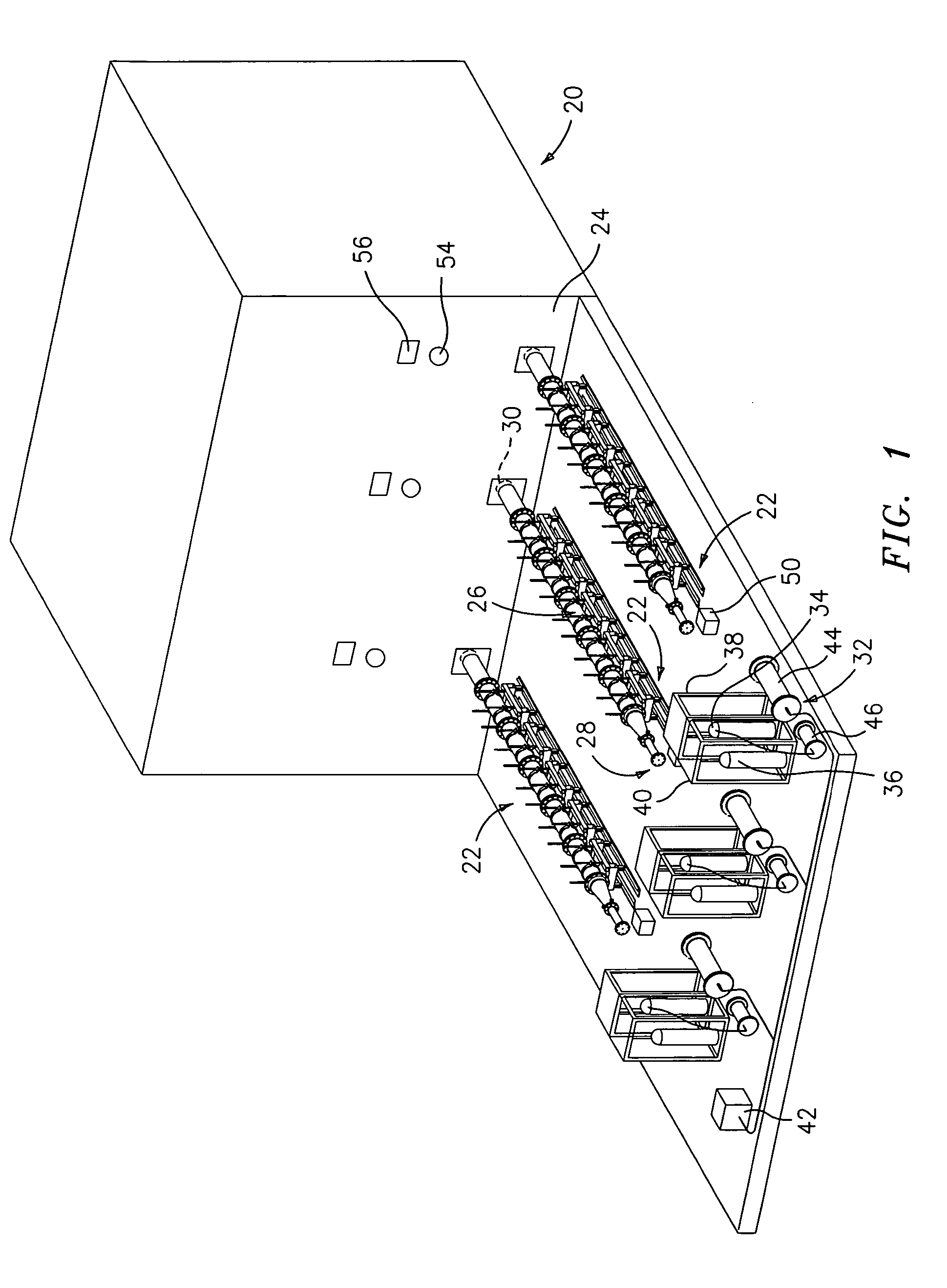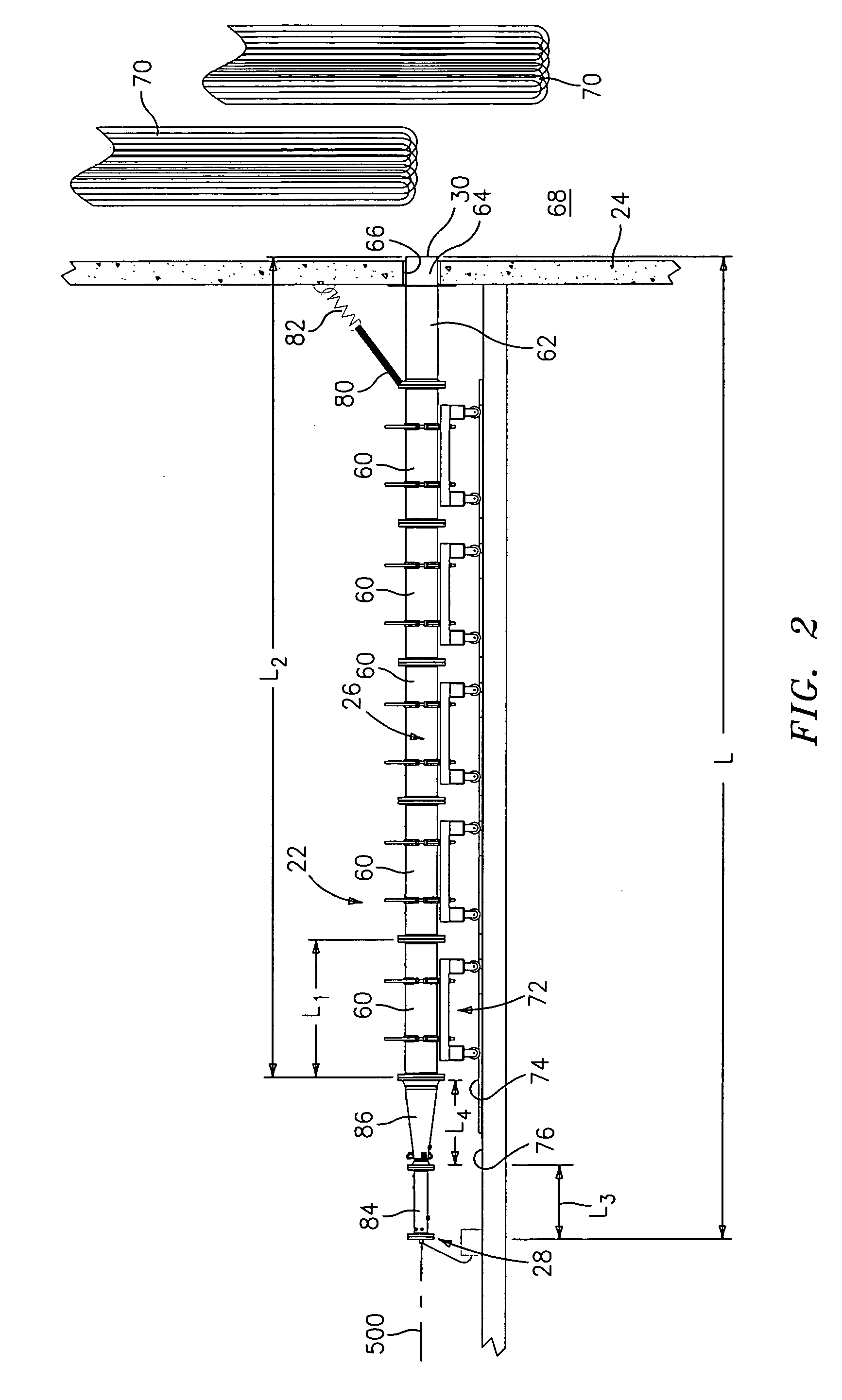Control of detonative cleaning apparatus
a technology of detonating cleaning and cleaning equipment, which is applied in the direction of lighting and heating equipment, cleaning using liquids, applications, etc., can solve the problems of reducing efficiency and throughput, difficult direct access to the fouled surface, and large industrial equipment surface fouling
- Summary
- Abstract
- Description
- Claims
- Application Information
AI Technical Summary
Benefits of technology
Problems solved by technology
Method used
Image
Examples
Embodiment Construction
[0021]FIG. 1 shows a furnace 20 having an exemplary three associated soot blowers 22. In the illustrated embodiment, the furnace vessel is formed as a right parallelepiped and the soot blowers are all associated with a single common wall 24 of the vessel and are positioned at like height along the wall. Other configurations are possible (e.g., a single soot blower, one or more soot blowers on each of multiple levels, and the like).
[0022] Each soot blower 22 includes an elongate combustion conduit 26 extending from an upstream distal end 28 away from the furnace wall 24 to a downstream proximal end 30 closely associated with the wall 24. Optionally, however, the end 30 may be well within the furnace. In operation of each soot blower, combustion of a fuel / oxidizer mixture within the conduit 26 is initiated proximate the upstream end (e.g., within an upstreammost 10% of a conduit length) to produce a detonation wave which is expelled from the downstream end as a shockwave along with a...
PUM
 Login to View More
Login to View More Abstract
Description
Claims
Application Information
 Login to View More
Login to View More - R&D
- Intellectual Property
- Life Sciences
- Materials
- Tech Scout
- Unparalleled Data Quality
- Higher Quality Content
- 60% Fewer Hallucinations
Browse by: Latest US Patents, China's latest patents, Technical Efficacy Thesaurus, Application Domain, Technology Topic, Popular Technical Reports.
© 2025 PatSnap. All rights reserved.Legal|Privacy policy|Modern Slavery Act Transparency Statement|Sitemap|About US| Contact US: help@patsnap.com



